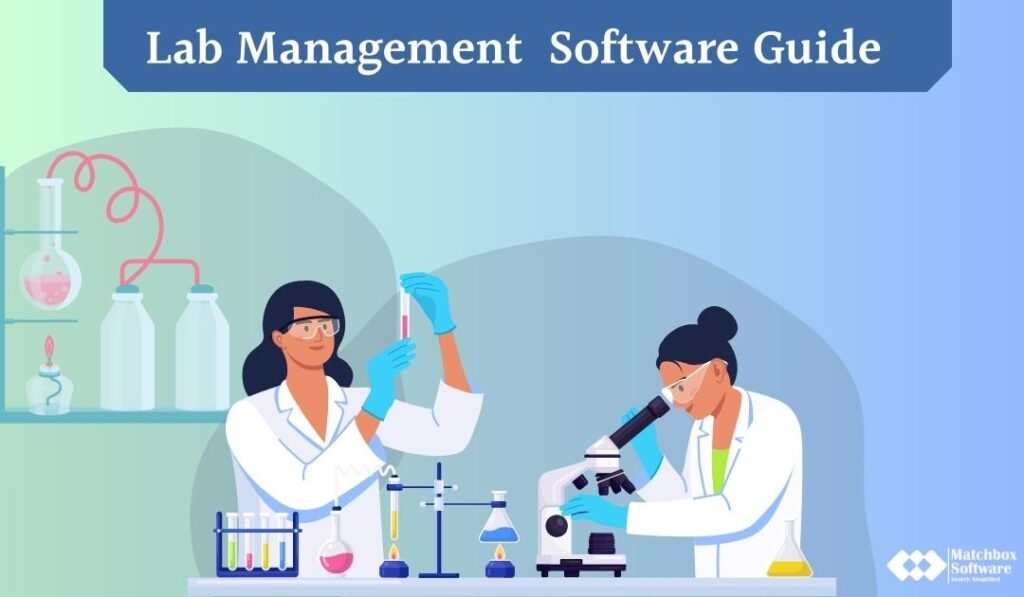Best Lab Management Software
Streamline your laboratory operations with our cutting-edge Lab Management Software. Track samples, manage inventory, schedule tasks, and enhance collaboration effortlessly. Elevate efficiency and precision today!
Featured Softwares
List of 10 Best Lab Management Software
Have Questions? We can help!
Get personalized recommendations from our experts on call!
Top Trending Softwares

Attune LabKernel
Attune LabKernel is a cutting-edge and modern software solution that revolutionizes the way healthcare collection centers, branches, and partner networks operate.
Table of Contents
What is Lab Management Software?

Lab Management Software is a specialized tool designed to enhance laboratory management through automation and advanced technology. It effectively streamlines various laboratory operations, significantly reducing the workload and improving precision. Lab management software serves as a comprehensive solution for overseeing laboratory activities, including procuring necessary testing equipment and ensuring the availability of essential chemicals. Flexibility in workflow management is crucial for every laboratory, and implementing lab management software is instrumental in achieving this. This software efficiently handles lab data, optimizes workflow, and manages valuable resources. Through seamless integration with laboratory instruments, it automates the entire operational process. Test orders are directly transmitted to lab instruments, and the results are recorded in the central database. In essence, lab management software’s primary objective is to enhance operational efficiency while minimizing manual tasks.
Types of Lab Management System
There are essentially two primary categories of laboratory management systems:
1. Stand-alone Lab Management Solutions
2. Modules Integrated within a Hospital Management System (HMS)
The primary purpose of the Laboratory Management System (LMS) module within the Hospital Management System is to facilitate and enhance the diagnostic workflow for doctors, with minimal oversight. Its core functionality revolves around capturing and recording test results and related data.
In contrast, a dedicated Laboratory Management System (LMS) solution offers comprehensive support for the entire laboratory process. This includes modules designed for both diagnostic and epidemiological workflows. Additionally, a dedicated LMS enables seamless data sharing among laboratories and public health networks, significantly reinforcing public health networks.
What are the features of Lab Management Software?
Lab management software (LIMS) is a system that helps laboratories manage their samples, data, and processes. It can automate workflows, track inventory, and generate reports. Some of the critical features of LIMS include:
• Sample tracking: LIMS can track the movement of samples through the laboratory, from when they are received to when they are analyzed and released. This helps to ensure that pieces are recovered and found.
• Data management: LIMS can store and manage large amounts of data, including test results, instrument calibration records, and quality control data. This data can be easily accessed and analyzed to improve the quality of laboratory results.
• Workflow automation: LIMS can automate many tasks involved in laboratory testing, such as sample registration, data entry, and report generation. This can free up lab technicians to focus on more critical tasks, such as analysis and interpretation of results.
• Inventory management: LIMS can track the inventory of laboratory supplies, such as reagents, consumables, and equipment. This helps ensure the lab has the supplies it needs to operate efficiently.
• Reporting: LIMS can generate reports on various data, such as test results, inventory levels, and workflow statistics. These reports can track performance, identify trends, and improve efficiency.
• Compliance: LIMS can help laboratories comply with regulations governing handling hazardous materials and reporting test results.
The specific features of LIMS will vary depending on the type of laboratory and the organization’s particular needs. However, the features listed above are some of the most common and essential elements found in LIMS.
What are the benefits of Lab Management Software?
Here are some of the benefits of using lab management software:
• Increased efficiency: LIMS can automate many tasks involved in laboratory testing, freeing lab technicians to focus on more critical tasks.
• Improved accuracy: LIMS can help improve laboratory results’ accuracy by providing a centralized system for data storage and management.
• Enhanced compliance: LIMS can help laboratories comply with regulations by providing a system for tracking and reporting data.
• Reduced costs: LIMS can reduce costs by automating tasks, improving efficiency, and reducing errors.
• Improved decision-making: LIMS can help laboratory managers make better decisions by giving them real-time data and reports.
If you want to improve your laboratory’s efficiency, accuracy, and compliance, then lab management software is an excellent option.
Lab management software is a comprehensive tool that helps streamline lab operations, from sample tracking to inventory management, ensuring efficiency, accuracy, and compliance.
Our lab management software offers customizable features and workflows, allowing you to tailor it to your lab’s unique requirements.
Our software includes robust security features and audit trails, helping you easily maintain data integrity and meet regulatory requirements.
Yes, our lab management software supports multi-user access and collaboration, fostering teamwork and improving productivity in your lab.
We provide dedicated technical support to assist you with any software-related inquiries or challenges you may encounter. Your success is our priority.

